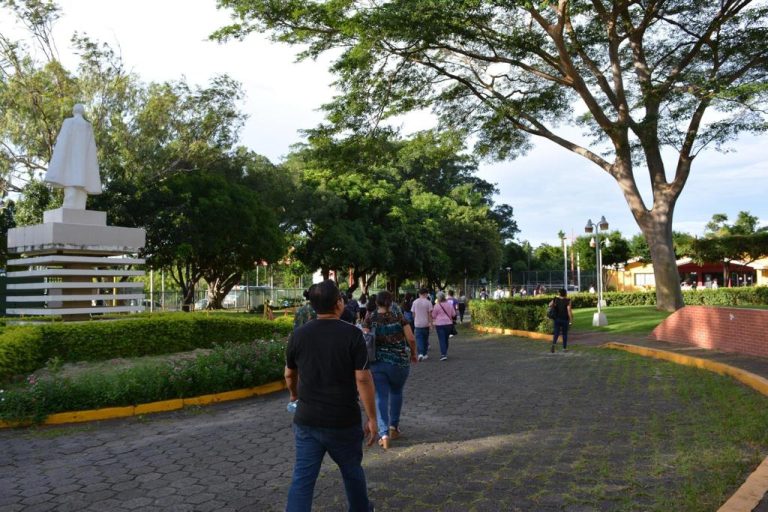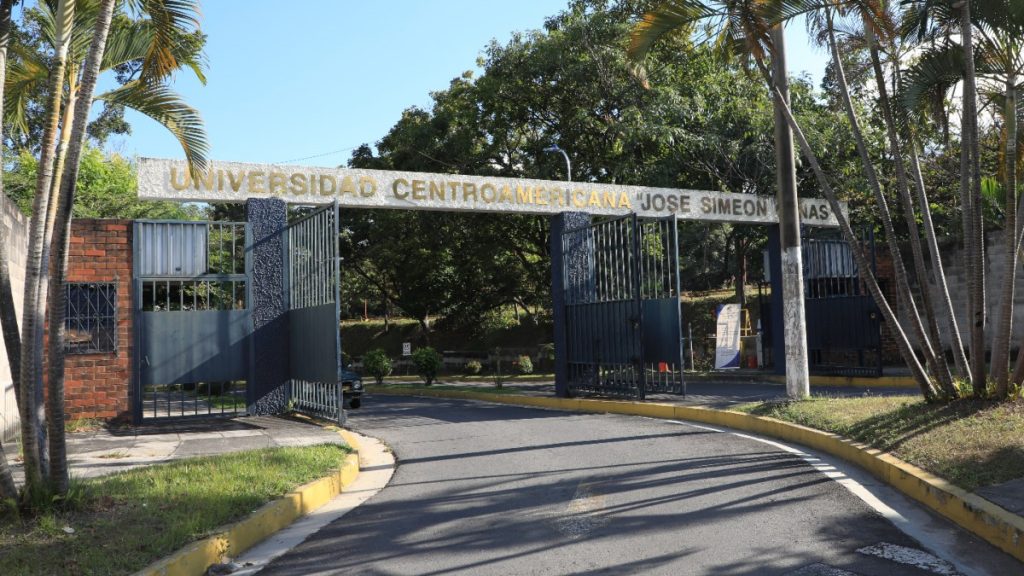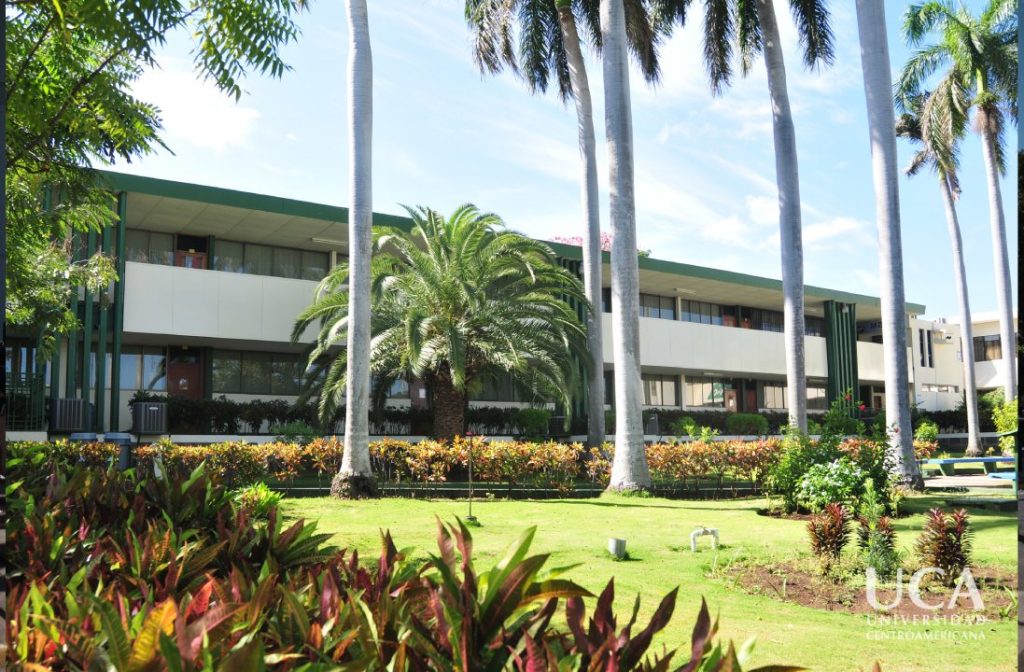29 de agosto 2023

Children of Exile: The Births “Sowing Hope” in the Camp of Nicaraguan Farmers

PUBLICIDAD 1M
PUBLICIDAD 4D
PUBLICIDAD 5D
Students express their grief at the abrupt closure of their university and their fears of persecution. “They don’t want us to be critical,” they affirm

“I never imagined that the dictatorship of Daniel Ortega would snatch and crush my dream of graduating and working in the field I love,” declares Enrique*. The twenty-two-year-old student was in his third year of Law School at the Central American University (UCA) up until August 16, when it was abruptly confiscated by the Sandinista government.
It’s the second time that this youth from a rural community in the south of Nicaragua has found himself “on the edge of a cliff.” In April 2022, he lost his scholarship, when the Ortega regime excluded the UCA from the National Council of Universities. As a result of this exclusion, the Jesuit-run center of higher education lost its funds from a constitutional provision that earmarks 6% of the Nicaraguan national budget for the universities. This money was used by the UCA to fund hundreds of scholarships.
“Since then, I had to begin taking fewer classes and to look for work to be able to maintain my studies,” he tells us.
Enrique explains that he found work assisting a lawyer who was a friend of his mother’s, to gain some familiarity with the type of work he desired. “The dictatorship’s story is that the UCA was a place only for the affluent, but that was a lie. All kinds of students were there, from the wealthiest to the poorest,” he affirms.
“A lot of times, I would stay there studying until nightfall without eating lunch or barely eating a quesillo [white cheese rolled in a tortilla] for the entire day,” this youth says. He doesn’t want to study in the Casimiro Sotelo National University, which is the new name the regime has given to the prestigious university it stole.
Among his doubts is whether a diploma from that new university, “will hold weight someday.” However, his greater fear is that “now everything in the new university will be valued according to who most kisses the dictator’s boots.”
“Many of my classmates foresee some persecution against the students. Against those who protested, those who posted something in their social media, or those who simply aren’t Sandinistas,” Enrique remarks.
Mariana* was about to take her very last class in order to graduate in Psychology. Now she describes how “inexplicable” she finds the things that have happened since August 16, when the Ortega regime accused the UCA of terrorism and ordered the confiscation of all its properties and assets.
“The only feeling I can describe, that even comes close to what I feel, is when a close family member dies, because I’m going through a mourning period. There’s a sense of impotence, of wanting to scream,” describes the student.
The first image of that grief that comes to her mind is when she saw how they were removing the letters “UCA” from the sign at the university entrance. “I was checking my e-mails from the UCA, downloading all my documents, my books, when suddenly the site closed down. Right then, I began to cry,” Mariana recalls.
She believes that all the UCA students had “the dream of emerging from a prestigious university, where they taught us to be critical thinkers.”
“It felt like it took me a very long time to arrive at the culmination of my career. Now they’ve stolen the UCA, when I only need one more class to graduate. The sensation is that they killed all my dreams,” the young woman laments. She also feels like they snatched “the dreams and sacrifice of my mother, to see her youngest daughter graduate.”

Carlos* also had just one class left before graduation, but in the field of Marketing. The university student began studying in the UCA in 2019, when the Ortega regime punished it with a drastic reduction in government funding from the 6% budget allotment for universities, in revenge for having given shelter to the students during the 2018 protests.
“I applied for a scholarship, but they didn’t give me one because they couldn’t. So, my parents had to put in a lot of effort to pay for my studies over these last four years,” he says. He describes it as “difficult” to cope with the news of the last few days.
“I have a lot of anxiety, a lot of uncertainty, because there are many of us young people who are going through this, without knowing what will happen with our university career,” he explains.
Carlos believes that the new authorities of the renamed “Casimiro Sotelo” university, will be allies of the dictatorship, hence “are going to try to indoctrinate everyone who remains studying there.”
Since the UCA was stolen, Carlos’ has devoted his days to sending e-mails to the Jesuit universities in El Salvador and Guatemala. “We’re all waiting for a prompt response. There are a lot of us who have asked for support,” he expresses.
If he doesn’t receive a response, he confesses he’ll have to stay in the new government university. “But no one wants to do that, because it goes against our principles, our values and our beliefs,” he insists.

Laura*, a fourth-year marketing student, is waiting for that same response. “They tell us they’re in the process of being able to help us. I understand that it’s hard to support over 5,000 students, who were all left without our university career here in Nicaragua,” she reflects.
This university student needed one final class and the defense of her class project in order to graduate from the UCA. “I was three months away from fulfilling that dream, in which I invested so much effort and struggle for five years,” she notes.
Laura wanted to continue studying for her Master’s outside the country, and says it’s very painful to see her plans frustrated. “The effort also belongs to my parents because I began paying, but in the course of my studies I succeeded in getting a complete scholarship. Now, they’ve ripped it all away,” she expresses.
Laura declares that remaining in the new university is her “last choice”. “To me, it would be a shame and a dishonor to hold a diploma that doesn’t have the name of the UCA on it (…) but thinking with a cool head, if we don’t manage to get into another university program, it will be the only alternative left to us,” she laments.
She currently works for a company “that accepted me because I came from the UCA.” Although she isn’t in the marketing department there, she was hoping to get promoted and achieve that. “Today, I don’t know what will happen to me,” she says sadly.
Alcides* was in his third year as a Psychology major at the UCA, but when it was confiscated he immediately looked for another option. His mother registered him at the Americana University (UAM).
“It was clear that they were making an effort to accommodate us these last few days; they even invented an improvised scholarship for all those coming from the UCA,” he specifies. The UAM, officially the property of the Nicaraguan Army, had offered the UCA students full credit for courses taken, and had established a set monthly tuition of US $150.
The young student tells how he went to one class and was well received by the professor and the other students. “I had illusions of staying there, on a new and beautiful campus,” he explains. However, they then told him to report to the Administration office, along with at least 600 other UCA students, where they were informed that their registration had been cancelled.
“Many of my classmates looked for options in other universities, and everyone offered excuses so as not to receive us. Apparently, the UAM was the only one that was making an effort to receive us, but then they suddenly decided to cancel the registration of all the recent transfers. According to what they told us, it was by order of the people who run the university,” he stressed.
In the face of this new frustration, Alcides is going back to his initial plan to finish the year in the new government university and seek other options later. He specifies that he’d love to remain in Nicaragua “surrounded by my family and loved ones,” but he admits that he doesn’t know what will happen in the coming days. “If the opportunity is offered me, I’d probably leave the country to finish my career or to begin my studies again from zero,” he affirms.
Armando, who was a professor at the UCA until its confiscation, knows that his students are desperate, especially because many of them didn’t manage to obtain their transcripts. He’s planning to leave the country, and he’s not alone. A number of his colleagues aren’t inclined to look for a letter of political endorsement or a Sandinista party credential in order to continue working at the university, he assures.
“I believe that all of them are going to seek options outside the country, or they’re going to dedicate themselves to other things. What will happen? You’re going to have a mass of thinking intellectuals doing some other kind of work that doesn’t raise consciousness, that doesn’t further science, that doesn’t allow us to share all we know with the new generations,” he predicts glumly. In any case, he also doesn’t believe that the Ortega authorities will stick with the UCA’s academic programs, as happened with the Nicaraguan Polytechnical Institute [confiscated in February 2022], where there was a purge of the faculty.

At the beginning of his second year of studies, Jose* received a scholarship as a Graphic Design student. Although his scholarship then began to be reduced due to the budget cuts the UCA suffered, “a friend of mine sponsored me, and helped complete my tuition payments, so I could continue studying,” he explains.
Jose finished his studies this year. “I was about to begin the paperwork to get my diploma, when they ripped away the UCAs identity. Now I’m concerned because I doubt that my diploma will carry the UCA name. I’m pretty sure it will have the new name,” the recent graduate affirms.
He states that some of his classmates had already paid for their diplomas, and were just waiting to be called to come get them.
“I think the future of young people in Nicaragua is of greater poverty. They’ve left that clear to us with the snatching of the private universities like the UCA. Also, because there’s no freedom of expression,” Jose expresses.
Raul* feels the same despair. He’s an Industrial Engineering student who was in the third year of his studies. He says he prefers to start all over again from nothing rather than graduate from the “Casimiro Sotelo University”.
They’re going to persecute us for having protested in 2018, because the regime doesn’t want us to be critical, to think for ourselves. They want us to be their subjects,” he asserts.
This 23-year-old youth believes it will be difficult to become a professional, but he’s not ready to give up. “This will come to an end, and although the lost time won’t be replaced, this dictatorship won’t last forever and what we should be fighting for, is the future of the country,” Raul insists.
Maria* believes that the UCA will return some day. “I’m sure it will once again open its doors, to offer that quality education that I received, and that I want for my children and grandchildren,” she avows.
* Note: all names used in this article have been changed to protect those participating.
This article was originally published in Spanish in Confidencial and translated by Havana Times.
PUBLICIDAD 3M
Confidencial es un diario digital nicaragüense, de formato multimedia, fundado por Carlos F. Chamorro en junio de 1996. Inició como un semanario impreso y hoy es un medio de referencia regional con información, análisis, entrevistas, perfiles, reportajes e investigaciones sobre Nicaragua, informando desde el exilio por la persecución política de la dictadura de Daniel Ortega y Rosario Murillo.
PUBLICIDAD 3D